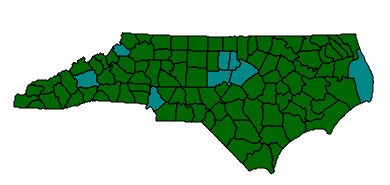626,538. That’s the unofficial total vote for Scott Walker in yesterday’s Republican pre-recall primary in Wisconsin. Walker’s “challenger” was Arthur Kohl-Riggs, an Occupy activist who argued that the GOP was no longer the Party of Lincoln, and to prove it, dressed like Lincoln. The fun Kohl-Riggs stunt ended up giving Walker an arena to prove how powerful his GOTV operation was. Some context: In 2010, only 614,511 people voted in the Republican primary that nominated Walker. Total.
670,278. The total number of votes cast in the Democrats’ primary, which Milwaukee Mayor Tom Barrett won. Early in the night, some sluggish returns from metro Milwaukee made it look like the Walker vote was outpacing the Democratic vote. But Democrats filed more than 1 million signatures to force the Walker recall – and they love repeating the 1 million number.
72,459. Total number of votes cast in West Virginia’s Democratic primary for Keith Judd, a convicted felon who likes to run for president every four years. If he had filed delegates (he hasn’t), he’d be entitled to 13 of them. By contrast, the much-covered presidential campaign of John Huntsman won 74,403 votes across all primaries, and before he dropped out Huntsman had won two delegates.
Eight. That’s how many of North Carolina’s 100 counties voted against Amendment One. The anti-gay marriage initiative only failed in college-centric areas with tons of white liberals – Buncombe (87 percent white)* – and in urban “ideopolis” counties like Mecklenburg (Charlotte) and Wake (Raleigh).
 The black liberal/white conservative coalition against gay marriage is strong. How strong? The amendment passed with 61 percent support overall. In 2008, a similar amendment passed in Florida with 62 percent.
The black liberal/white conservative coalition against gay marriage is strong. How strong? The amendment passed with 61 percent support overall. In 2008, a similar amendment passed in Florida with 62 percent.
16. That’s difference between Richard Mourdock’s 4-point lead in a final poll average and his actual victory margin over Richard Lugar.
*I originally made two map-reading errors.
Five Numbers That Explain Yesterday’s Votes
Advertisement